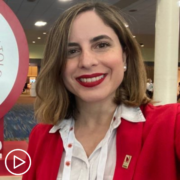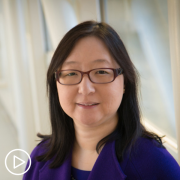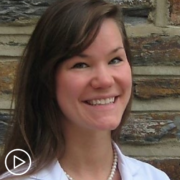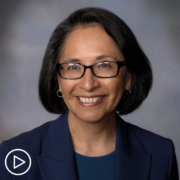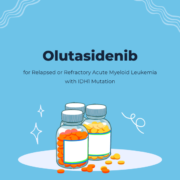Dr. Sara Taveras Alam: Why Is It Important for You to Empower Patients?
Dr. Sara Taveras Alam: Why Is It Important for You to Empower Patients? from Patient Empowerment Network on Vimeo.
How do care providers empower patients, and why is it important? Acute myeloid leukemia expert Dr. Sara Taveras Alam from UT Health Houston shares various methods she employs to empower patients in their care, cancer journeys, and ultimate decisions about the way they want to live with cancer.
See More from Empowering Providers to Empower Patients (EPEP)
Related Resources:

|
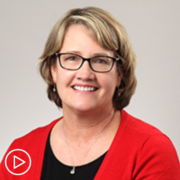
Charise Gleason: Why Is It Important for You to Empower Patients? |
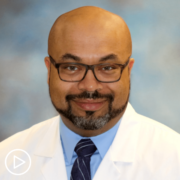
Dr. Craig Cole: Why Is It Important for You to Empower Patients? |
Transcript:
Dr. Sara Taveras Alam:
I empower my patients by explaining their disease at an elementary grade level, educating them on what to expect with treatments and keeping open lines of communication with them. I encourage my patients to share their journey with those who are close to them and to accept help. An extra set of ears may be helpful to recall conversations with physicians, and writing down questions in between visits can make sure that questions don’t go unanswered. I provide my patients with educational resources on their disease and do my best to explain the nuances of their treatment and what life with AML looks like.
I empower them to be their best advocate and ensure they know that they are the decision makers in this process, and we are here to guide and support them. Ultimately, it is their life, and they get to choose what is important to them. We should accommodate as best as we can. And sometimes that may be allowing them to postpone their next chemo cycle for a few days for a meaningful life event.
When things are rough, I empower patients by acknowledging their hardship and keeping alive the hope of cure unless that is no longer feasible. In the circumstances when controlling the disease is no longer feasible, I make every effort to accompany the patient in their concession of end of life care where there are no doubts about stones unturned, there is quality time with their loved ones, and there is peace of a life well-lived.

